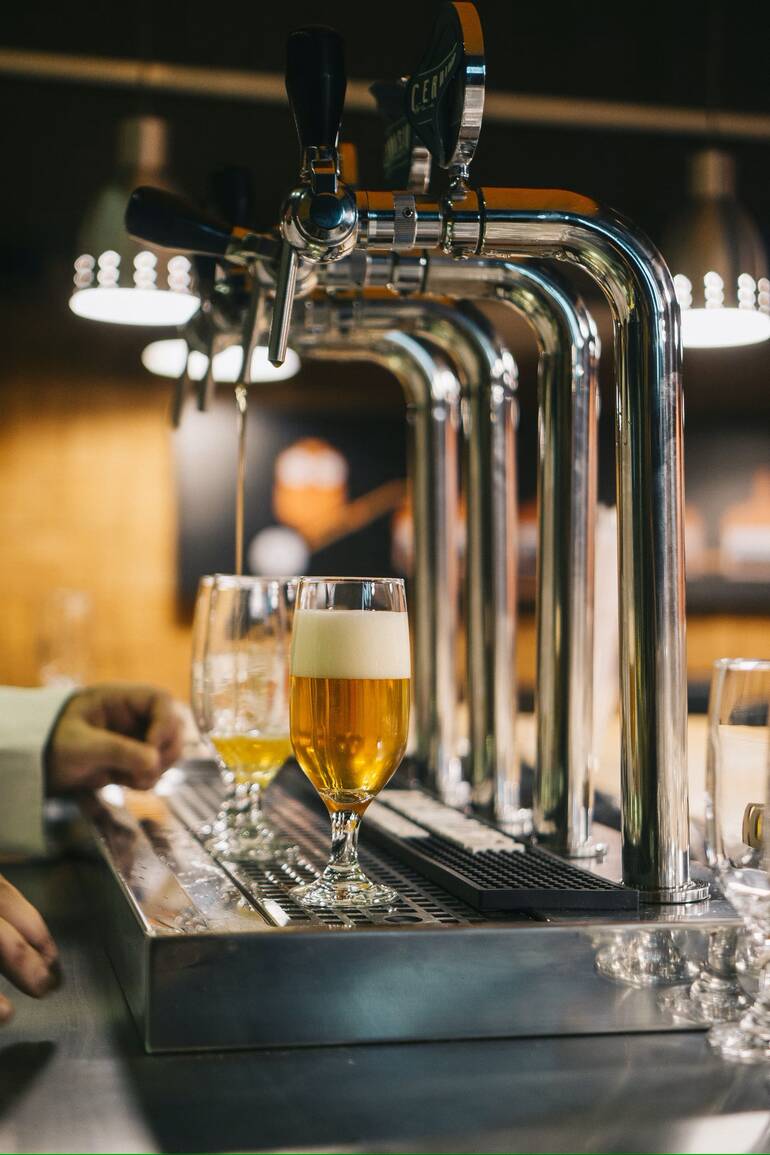Start 14-Day Trial Subscription
*No credit card required

Sustainability Trends in the Beer Industry
The food and beverage industry is a leader in sustainability matters, with research by ESG consultants, EcoVadis, indicating that the sector has a sustainability score of 48.9 (coming second only to construction, which leads with a score of 49.4). Sustainability involves more than an industry’s total footprint. It covers a number of issues—including waste and pollution reduction, reduced energy and water consumption, improved diversity in hiring, paying fair wages, promoting health, and minimizing environmental impacts. The beer industry is shining a light on sustainability, with many companies embracing transparency, fair conditions for workers, and various green initiatives. The following are just a few trends taking over the sector.
Increased Transparency
Consumers are increasingly savvy when it comes to sustainability, leading to a big push for transparency from the food and beverage sector. Companies like Bud Light are therefore sharing their data and goals with customers, in an attempt to connect with greener generations. Although Bud Light has not traditionally been a standard-bearer for sustainability, its parent company, AB InBev, has set out to establish the beer brand as a leader in both sustainability and transparency. As such, the company has announced specific objectives with a deadline of 2025. These include purchasing 100% of its energy needs from renewable sources, packaging 100% of its products in returnable or recycled packaging, and improving water availability and quality in 100% of its communities in high-stress areas.
Biodegradable or Compostable Packaging
Eco-friendly companies that are able to are raising the bar even further by presenting their products in biodegradable or compostable packaging. For instance, E6PR makes four- and six-pack rings for beer. These are made from a byproduct of beer brewing, and they provide a green alternative to current plastic rings. The company is currently working towards obtaining compostable certification, but for now, it simply refers to its rings as biodegradable and made from non-tree biomass. Denmark’s Carlsberg, meanwhile, has unveiled a new prototype called the ‘Green Fibre Bottle’. Its exterior is made from sustainable wood fiber and is lined with a bio-based coating. If this bottle makes it to production, it will be the first 100% plant-based, fully recyclable beer bottle in the world.
Paying Fair Wages
Sustainability looks further than the environment; it also seeks to protect the social fabric of society. Sustainable companies pay employees fair wages—those that cover the real cost of employees’ basic needs while also respecting the economic constraints that running a company involves. Worker-friendly initiatives that are rare but powerful include distributing a percentage of business profits among employees. UK breweries like BrewDog, meanwhile, form part of Living Wage—a rate paid by thousands of UK companies that believe that staff members deserve wages that represent their real needs. Over a one-week period, employees earning a living wage earn £53.60 more than those on the national minimum wage.
Superfood-Enhanced Beers
Companies are seeking to connect with health-conscious customers by offering drinks with ‘superfood’ ingredients like CBD. Molson Coors, for instance, introduced Verywell—a line of beverages containing CBD and adaptogens (which enhance the body’s ability to adapt to stress). Superfoods Beers, meanwhile, has added a wide array of superfoods to its products. Ingredients to watch out for include maca, ginger, ginkgo, carob, yuzu, and acerola. The company also shows its commitment to green processes by setting off its carbon emissions via tree planting. It also transforms its spent grain into crackers.
Consumers have spoken, and they are keen to back sustainable food and beverage companies. Just a few trends holding sway include transparency and fair wages for workers. Sustainable packaging is also a big priority for companies seeking to eliminate plastic altogether from the packaging industry.



